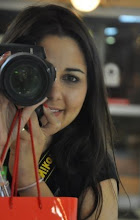
A community is identified in biological terms to be a group of interacting organism sharing an environment, and in sociology by the mid-1950s there were 94 definitions. All definitions, concluded to the main idea that a “community” is a group of interacting people living in a common place. Schools are no differing. It is important for the student to succeed at being part of a community. Knowledge should be attained by student’s understandings of searchable truths, surrounded by other members of their community. Students should have a guide, which teaches them how to be a responsible citizen through learning to collaborate with their community and be an active member in contributing to society. With cooperative and collaborating learning, students are encouraged to work together in small groups on a clear objective. It is imperative for the teacher to watch for signs of student’s abilities and weaknesses and decide how to pair small groups. Some of the critics of cooperative and collaborating learning find this teaching to cause problems for students who are more advance, as they may be held back by students with a lower-level of thinking. But there is evidence of students with a higher-level of thinking to actually excel and to enjoy from this experience; for these students, form different ways of thinking. They define or learn to explain their knowledge in different forms when this knowledge is being passed on to others. But nevertheless, it is the teacher’s responsibility to mold the group that fits and works together for the purpose of elevating a higher-level of thinking of each groups’ member. It is also known for students to come across with other’s student’s ego. When conflicts arise, the teacher who chooses to use this form of learning in their classroom is expected to resolve it as soon as it occurs and show to their students how to deal with one another. The Teacher provides students with keys to use for eliminating future negative outbursts. The teacher is also encouraged to be as specified with the details of the lesson plan. The teacher breaks down the objective for the students to use their in group exploration in finding the meaning, and provides to the students all of the necessary tools to come to the final work. For example, the teacher should create rubrics at the beginning of any assignment. Students also need to be indulged in feedback by the teacher on a regular basis, reassuring their progress. When students participate in cooperative learning, a student develops interpersonal skills, nourishes weaknesses, and acquires other ways of thinking. The student also applies principals of constructivism when working in groups. They create new ideas based on personal and shared foundations of past experiences and understanding. Students integrate inquiry-based learning when working in smaller groups; asking deeper questions to any subject given. Our society lives in an interdependent universe; therefore we must learn to work with one another, walking together while we develop higher-levels of thinking for the benefit of our community.

No comments:
Post a Comment